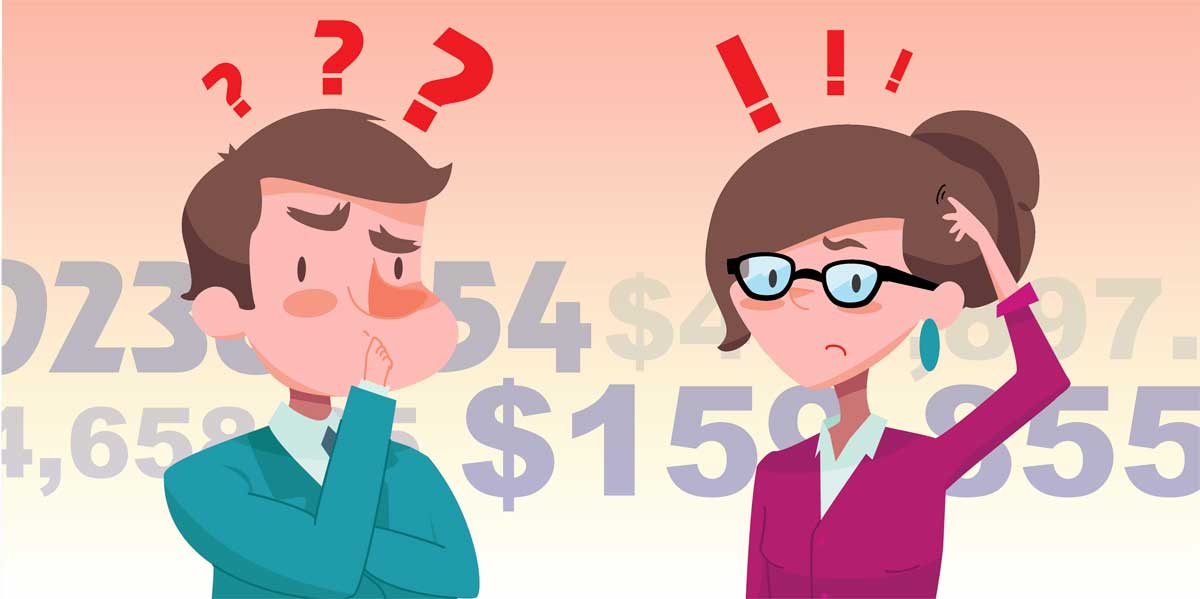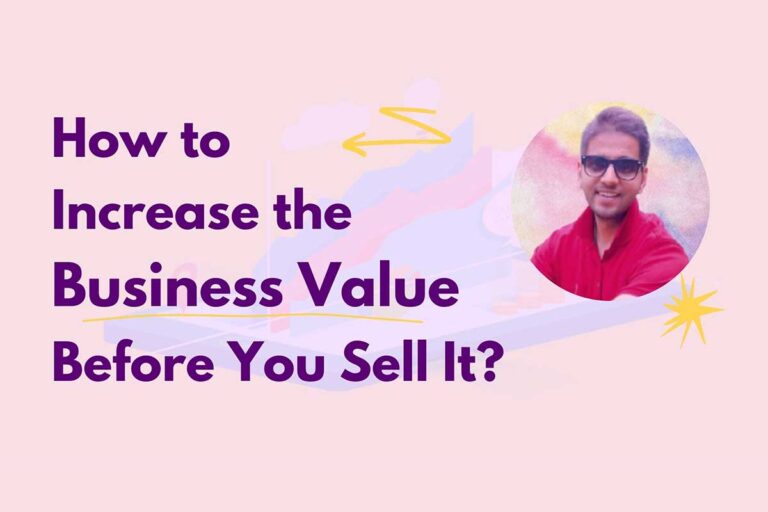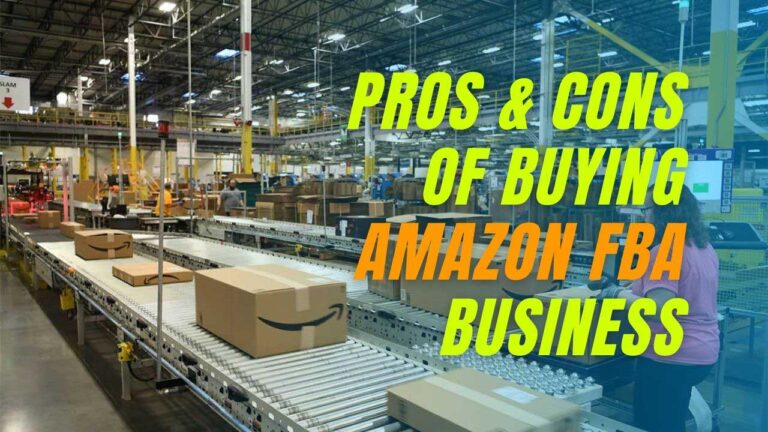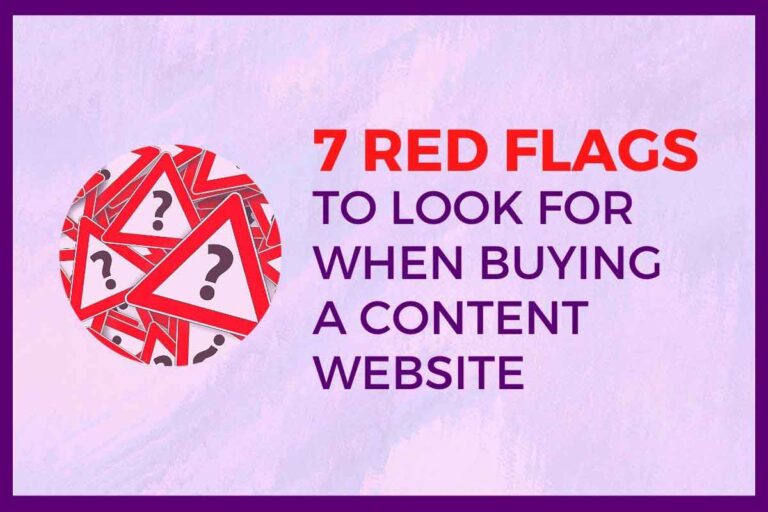If you had told someone 20 years ago when the Internet was in its infancy that one-day people would be able to make serious money from simply selling a website they had created, chances are the only response you would have got was a polite chuckle.
Fast forward a quarter of a century, and people are doing just that. “Regular” people too, not just tech nerds and eggheads. It’s now perfectly possible to make a tidy cash profit from selling websites, but you do have to know what you are doing, or at least know someone who does and can help you out.

One of the first steps to be taken before selling any online business is to try and determine its value.
In fact, that’s something worth doing, even if you have no plans to sell your online business right now. After all, you probably know what your house or car is worth, so why not try to determine the actual ROI from all of that hard work – and money – you are putting into your little slice of potentially lucrative Internet real estate?
How Much is Your Online Business Worth?
What makes one business valuable and another far less so, at least in the eyes of a potential buyer? That’s a big question to which there is no one good answer.
Ask five different potential buyers what they think a business is worth, and you’ll probably get five different answers, with at least a couple of them varying wildly. That’s because every buyer sees the potential any site has a little differently. And that’s only just the start of things getting a bit hard when determining an accurate valuation of your online business.
Prepare Yourself to Get Disappointed
Before getting into the numerous basic ways that are used to determine the business’s value, you need to be told a few home truths about your business.
You think your site is great. Brilliant visuals, stunning content. You’ve put in hours of work and tons of money. You’ve followed every reasonable recommendation and advice article you could find to help ensure it’s properly optimized. It’s a great piece of work, even if you do say so yourself.
That’s fantastic, but it may all mean very little when it comes to determining the actual value of your business. Many buyers aren’t really too bothered by what a site looks like or even much of its actual content.
Instead, they are interested in getting the best possible ROI on their business purchase in the shortest possible time. Period.
The extra money you might have invested in building a fancy website for your business may not matter too much. You might have paid thousands to hire the best developer, install the best graphics, get a customized-built- just-for-you theme. But, if a potential buyer can’t see the money-making potential, none of that matters. That investment can’t be added to the value of the site just because you made it.
If, however, your business has, for example, a decent-sized membership and they pay their dues every month, AND you have some decent, demonstrable advertising income and good traffic, you may be onto something. Why? Because those are things that you can prove now.
It is therefore important for you to determine issues of your business and rework on certain things to increase its sale value.
The takeaway here is, be prepared to be disappointed. Then, hopefully, when business valuations do start coming in, you’ll be aware that as valuable as you think your baby is, others may not agree.
The Most Commonly Used Online Business Valuation Methods
Before getting into the actual valuation methods used, you should understand some of the factors that might add value to your site in general:
- A unique selling point
- Demonstrable, consistent earnings
- Month to month growth
- Several different revenue streams
- Increasing and diverse traffic
- Consistent and effective branding
- Name recognition
Although, the methods different buyers might use to personally come up with a value for your business will vary to a certain degree, here are some common ones that the most experienced buyers will use:
#1. SDE/ EBITDA/ Net Profit/ Revenue Multiple
This method is a rather basic way to calculate the value of a business, one that most people use, even when considering other factors.
Take the net profit the site generates annually and multiply that by 1, 2, 3, etc., depending on how much they are willing to pay.
Mathematically, the profit Multiplier looks like this:
- Annual Business Profit/ SDE = $900,000
- Multiplier buyer is willing to pay = X5
- Business Valuation = $4,500,000
Whether you should take SDE, EBITDA, Net Profit, or the revenue as your base for multiple, entirely depends upon the size of the business.
- Very Small business: Net profit x some multiple = Value.
- Small Business: SDE/ EBITDS x some multiple = Value
- Mid-sized business: Revenue x some multiple = Value
(Very small business – generating around $100k per year in top-line revenues; small business – generating between $100k to $1M per year in top-line revenues; Mid-sized business – generating between $1M to $15M per year in top-line revenues;)
A shrewd buyer will rarely rely solely on this kind of calculation. It is simple but a little too basic. However, most automated website value calculators use this method, no wonder they are so unreliable.
#2. Comparable Sales
Real estate agents have been using comparable sales figures to help determine the value of a home for decades. This same theory works with websites too.
The process is almost the same. The potential buyer tracks down sales stats for businesses similar to yours for several months and does a tentative valuation. Again, not an accurate method but a good way for a buyer to get a “ballpark figure.”
#3. Asset Valuation
A potential buyer will also perform an asset valuation to determine what they believe would be a fair price. It would consider more of the factors unique to the individual website, including:
a. Quality Traffic
When evaluating a website’s traffic, the visitor numbers are a secondary consideration for any savvy buyer. They want to see quality traffic that converts. They also want to see diverse sources of that traffic.
If your website has decent traffic numbers, but most of that traffic comes from a single source (Google search, Facebook, a ‘feeder’ landing page), then any investor will think twice about buying your website.
One simple algorithm tweak or accidental rules violation could see it all dry up, rendering the site at least temporarily useless.
Additionally, websites with more organic traffic are generally more valuable than those that rely on paid traffic. However, the latter is not sustainable and would significantly affect the owner’s net profit, making it less attractive.
b. Mailing lists/ Subscribers
Creating a solid mailing list should be a top priority for most website owners. Sometimes, a mailing list may even be worth more than the site itself. So, if you have one, you must know that it is valuable.
How?
One fundamental way to determine the mail list value is through the concept of “replacement cost.” How much does it cost to get each subscriber on the list?
For example, say that to lure each of the subscribers, it cost $5 via Adwords, Facebook ads, employee time, etc. The list contains 5,000 names. That’s a value of $25,000 for the list.
That, however, is a very basic estimate.
Furthermore, subscribers are more valuable because they can easily be monetized with additional revenue models. Yet, for them to be truly valuable to a buyer, you’ll need to show how you maintain them. Those methods should not take too much away from the net profit potential.
c. Paid Customers
Current customers can be a measure of the value of a website’s offering. The more customers a potential investor can see, the higher the value your website shall be.
They may also consider factors like the number of repeat customers vs. new customers. The former must outweigh the latter to be more attractive.
With great customer numbers, the buyer can see a potential return on his investment and thus be willing to pay more.
d. Recurring customers
High numbers of recurring customers on your business will exponentially increase its value. Regular customers indicate brand loyalty and also guarantee continuous revenue through repeat purchases.
As such, they are more valuable than large streams of new customers. Additionally, it costs more to attract new customers, which further lowers the profit potential for your site.
So, many investors will be keen on the ratio of your recurring customers to new customers. So, think about how you can turn your current revenue model into a recurring revenue model.
e. The Owner’s Workload
If your business requires a lot of time and resources to keep it running, it may be of much lower value than you thought.
Usually, potential investors are not looking for businesses that would require high workloads for owners. Most of them just want another quick money-making venture.
And therefore, they will likely undervalue your business, considering the costs of hiring a replacement for the current owner. However, finding solutions, such as automation or hiring a team before selling, might boost the perceived value.
f. Social Followers
Social media is ever more important in online businesses today. So, having a large social media following will increase the value of your website when you choose to sell.
Large numbers on major platforms like Facebook, Instagram, Pinterest, etc., signal high customer and branding potential. It is a ripe audience for generating leads, increasing traffic, gaining better search engine rankings, among others.
So, most potential buyers will evaluate the number of people on your site socials to determine how much they should pay for it partly.
That said, social followers will only work if you can also prove that they are critical to the site’s growth and not just numbers.
g. Brand recognition
Your site does not have to compete in brand recognition with the likes of Google and Amazon. But if you can demonstrate, for example, a solid and growing Instagram presence that produces ‘buzz’ within the business’s target audience, you may have a case for upping the price.
h. Business age
A potential buyer will consider how long your business has been running to assess its value: the older, the more valuable.
Old businesses tend to carry higher multiples than newer businesses. That is because you can show long-term data, including the cash inflows, long-standing clients, operational costs, and others.
This information provides better insight to potential buyers about whether or not they will get returns on their investments.
i. Domain name
Domain names are bought and sold every day on the Internet. So if your site has a great branded domain name, just that URL itself may add to the site’s overall value.
Such high-demand names generally draw a lot of current and potential traffic, making them a plus.
These are not the only methods buyers will use to determine what they think is a fair price for your site. These are just a few examples. Anything they feel might help them turn a profit in a reasonably short amount of time will likely be a factor in their valuation equation.
So What’s the Real Value of your Internet Business?
Homeowners who are selling their property often run into the same problem. They take a value from an online calculator, pull a few comps, add in what they think are factors that increase the value of their place, and come up with an asking price that is often even wildly high – meaning the place doesn’t sell, or woefully low, meaning they lose out when it does.
Online Business owners often do the same. They are perturbed when they list their site for sale in some random marketplace, and it either doesn’t sell, or all they get are lowball offers.
The key to avoiding under or overpricing a real estate property is a professional evaluation from a real estate agent. These consultants make use of their unique knowledge of the current market, the neighborhood, and what does or does not add value to a home to determine a realistic listing price that will get the place sold.
Online business owners can do the same. As I’ve tried to convey here, getting an accurate picture of a business’s value is not a science, it’s an art. Buyers take the time to test and perfect it, and there are others out there – Internet real estate agents if you like – that do so too. These are the people you need on your side if you are serious about selling your business for what it’s worth.
Get a free valuation and planning call with BuySellEmpire to better understand your business’s value and how to position yourself for maximum value in an acquisition.






